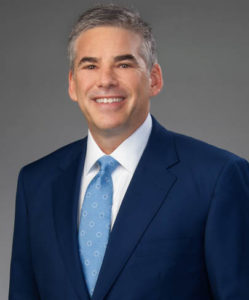On April 23, 2020, the Small Business Administration (“SBA”) issued additional guidance (in an update to its previously published FAQs, a current version of which can be found here) regarding whether businesses owned by large companies qualify for a Paycheck Protection Program (“PPP”) loan under Section 1102 of the Coronavirus Aid, Relief, and Economic Security Act (“CARES Act”).
Specifically, the SBA has indicated that in addition to reviewing other applicable eligibility requirements and rules, a borrower must assess their economic need for the PPP loan under the standard established by the CARES Act and the PPP regulations that existed at the time of loan application.
As part of the PPP loan application process, borrowers are required to make certain certifications, including certifying in good faith that “[c] urrent economic uncertainty makes this loan request necessary to support the ongoing operations of the Applicant. ”
The SBA, in the newly added question #31 of the FAQs, expands on this necessity certification by providing that a borrower must take into account (1) their current business activity, and (2) their ability to access other sources of liquidity sufficient to support the borrower’s ongoing operations in a way that does not have a significant detriment to their business; notwithstanding the carve-out created by the CARES Act that a borrower not be required to show they are unable to obtain credit elsewhere in order to be eligible for a PPP loan (“no-credit-elsewhere” is an eligibility requirement for other SBA loans). The new FAQ goes on to state, by way of example, that it is unlikely that a public company with substantial market value and access to capital markets would be able to make the aforementioned certification in good faith.
A borrower that applied for a PPP loan prior to the addition of the new FAQ (April 23, 2020) will be deemed to have made the required necessity certification in good faith, despite such certification not being accurate in light of the additional SBA guidance, if the borrower returns all PPP loan proceeds it received in full by May 7, 2020.
While the example in the new FAQ is directed at public companies, the general guidance set forth in the new FAQ is applicable to all borrowers (including private companies). As such, all borrowers should evaluate their necessity certification based on this new guidance to determine whether they meet the standards as set forth in the new FAQ and whether such loan proceeds should be returned.
Importantly, making any knowingly false statement in the PPP loan application (which includes the certifications) could subject the borrower (and/or person making such statements) to criminal punishment including imprisonment and substantial fines.
In any event, it is recommended that all borrowers take steps to adequately document that the PPP loan was necessary to support their ongoing operations given economic uncertainty as well as that the borrower did not have access to liquidity (beyond the PPP loan) to support such operations in a way that would not be significantly detrimental to the borrower’s business.
About the Authors:
J. Troy Terakedis is a Member in Dickinson Wright’s Columbus office. He can be reached at 614.744.2589 or tterakedis@dickinsonwright.com.
Peter J. Kulick is a Member in Dickinson Wright’s Lansing office. He can be reached at 517.487.4729 or pkulick@dickinsonwright.com.
M. Katherine VanderVeen is an Associate in Dickinson Wright’s Detroit office. She can be reached at 313.223.3098 or mvanderveen@dickinsonwright.com.



